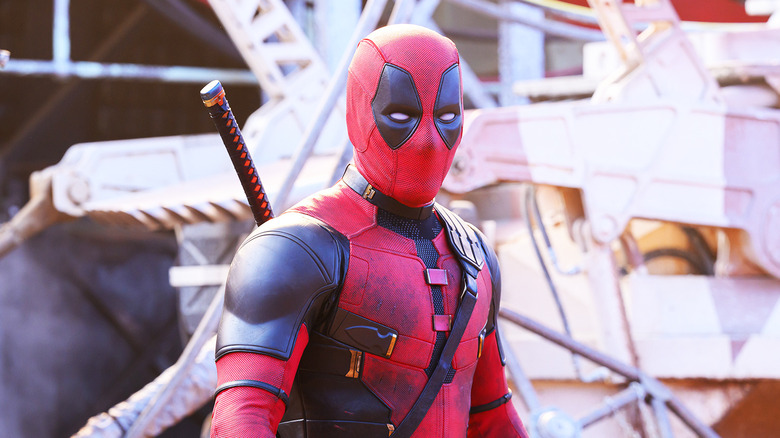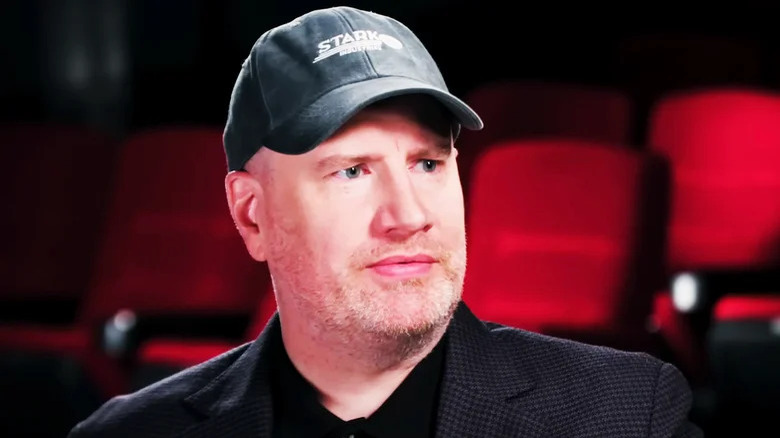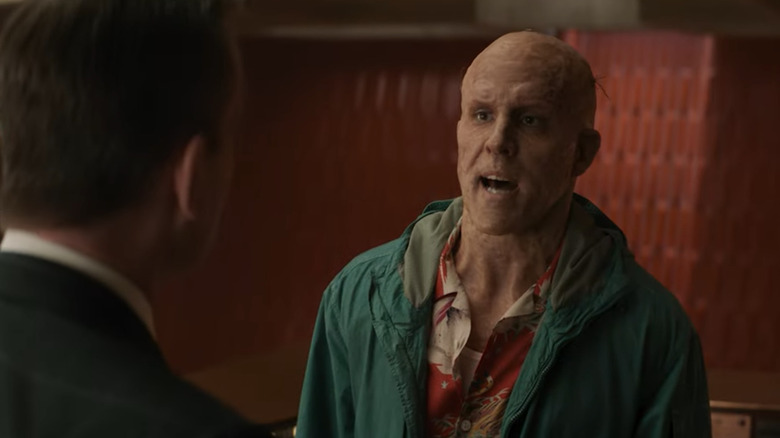Marvel's Kevin Feige Had 4 Words Of Advice For Deadpool & Wolverine
The Marvel Cinematic Universe is back, and most of that is down to Ryan Reynolds. The man who knows how to wring every bit of commercial potential out of a piece of IP turned his attention to the flailing MCU and rescued the franchise following a series of setbacks that had many questioning whether Marvel Studios' reign was coming to an end. In "Deadpool & Wolverine" Reynolds delivered a box office megahit that blew past the billion dollar mark just three weeks after it debuted, mainly by doing absolutely everything he could to make his team-up flick a can't-miss scenario for fans.
In practice, that meant turning "Deadpool & Wolverine" into one long cameo-fest and packing it with more wisecracks than even his previous "Deadpool" movies — themselves mere excuses for Reynolds to be a bit snarky and irreverent while simultaneously trying very hard to make us all like him. It's a formula that worked better than Reynolds and Marvel Studios head Kevin Feige could have hoped, and now we just have to see whether the franchise can maintain this level of success going forward.
One thing's for sure, however: We'll be seeing more of Reynolds' Merc with the Mouth in future. While "Deadpool & Wolverine" actually ended up being surprisingly inconsequential for the wider MCU continuity, now that Feige's golden boy has proven his worth, Deadpool will unquestionably be teaming up with more Marvel superstars in the years to come. It seems in order to repeat his "Deadpool & Wolverine" success, Reynolds need only to remember the words of advice that Feige himself offered prior to the movie going into production.
Kevin Feige's simple advice for success
There is a relentless pace to "Deadpool & Wolverine." Of course, a film crammed with this many cameos and Easter eggs was always going to feel like an assault on the senses, but Ryan Reynolds, who not only starred but co-wrote and produced the movie, and director Shawn Levy somehow made even the less chaotic scenes feel charged with energy. That's a testament to the duo's talent, or at least their willingness to adhere to Kevin Feige's wishes.
In a Deadline interview, Reynolds recalled how the Marvel Studios head gave him some simple advice during an early meeting for "Deadpool & Wolverine." "He said something that sounds very pedantic," said Reynolds, "and is probably not the thing to say out loud, but actually, weirdly, served as a creative engine. He was like, 'Make every scene great.' And I was like, 'Thanks, Kev. Sounds good.'"
Despite its massive popularity, "Deadpool & Wolverine" is notably divisive in the sense that its unabashed fan pandering has torn some fans, including the /Film team, apart. But I don't think it can be argued that Ryan Reynolds did his best to make every scene as great as Ryan Reynolds possibly could. Does that mean we got less of a film and more of a cameo/wisecrack highlight reel? Yes. But one gets the sense that this is Ryan Reynolds' idea of making every scene great, so in a way he seems to have taken Feige's advice seriously.
Kevin Feige's advice to Ryan Reynolds was exactly right
Some have speculated that part of the reason the MCU has faltered of late is because Kevin Feige has had less and less of a role in the various projects being produced by the studio. The sheer volume of Marvel films and TV shows essentially meant that, at one point, we had far too much of the MCU and it was getting ridiculous. Even if he tried his best, there's no way Feige could have been as invested in the creative process as he was in the early days when "Iron Man" changed Hollywood forever.
That is to say that there's an uneasy undertone of veracity to the image of Feige bringing various Marvel Studios creatives into his office and telling them to just make things "great," before curtly dismissing them. If that were the case, I think we would have found the source of the MCU's recent troubles. But as we know, the man has been with the company since its inception and is largely responsible for establishing the MCU as the gargantuan franchise it is. So, the idea that Feige was being intentionally glib in his advice to Ryan Reynolds seems unlikely.
Rather, Feige likely recognized that the MCU was in need of more simplicity in an age where streaming shows about lesser-known heroes with abstruse comic book lore were muddling a once dominant cinematic saga. In that way, simply advising Reynolds to "make every scene great" was about the best advice he could have given.


